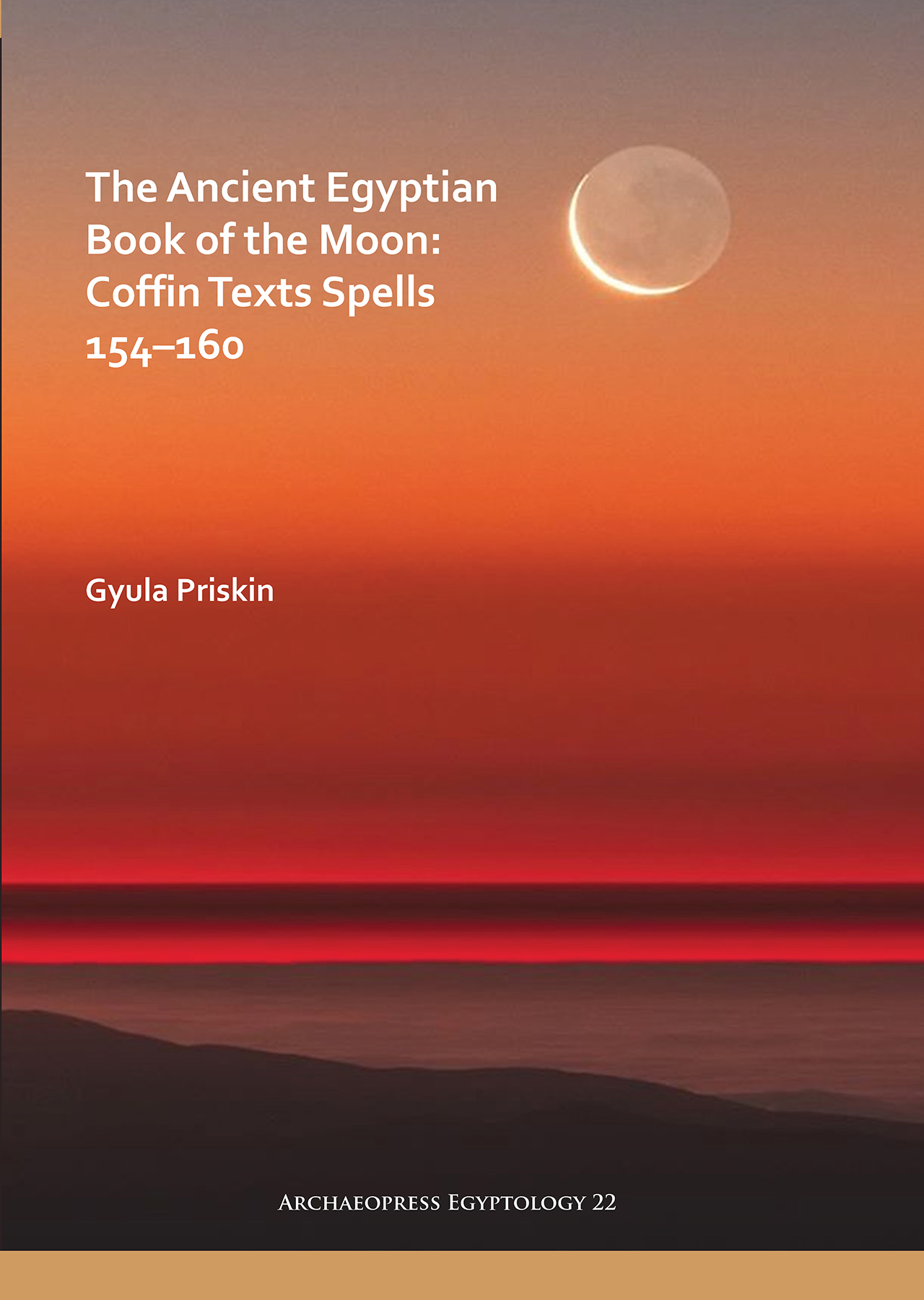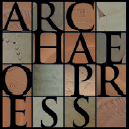
Publishing Scholarly Archaeology since 1997

Download Sample PDF
H 245 x W 175 mm
262 pages
4 tables, 1 figure
Published Jun 2019
ISBN
Paperback: 9781789691986
Digital: 9781789691993
Keywords
mortuary literature; Coffin Texts; Pyramid Texts; moon; lunar ideology; astral myths; eye of Horus; Hermopolis; textual tradition
The Ancient Egyptian Book of the Moon: Coffin Texts Spells 154–160
Paperback
£30.00
Includes PDF
PDF eBook
(personal use)
£16.00
PDF eBook
(institutional use)
£30.00
This book proposes that Coffin Texts spells 154–160, recorded at the beginning of the 2nd millennium BCE, form the oldest composition about the moon in ancient Egypt and, indeed, the world. Based on a new translation, the detailed analysis of these spells reveals that they provide a chronologically ordered account of the phenomena of a lunar month.
Contents
1 – Introduction; 2 – The spells; 2.1 – Spell 154: the origins of the month; 2.2 – Spell 155: lunar invisibility; 2.3 – Spell 156: the waxing moon; 2.4 – Spell 157: the full moon; 2.5 – Spell 158: the waning moon; 2.6 – Spell 159: the moon at the eastern horizon; 2.7 – Spell 160: a solar eclipse; 3 – General Commentary; 3.1 – The major themes of the spells; 3.2 – Textual layers in the Book of the Moon; 3.3 – The text variants from Deir el-Bersha and Asyut; 3.4 – The survival of the spells in the Book of Going Forth by Day; 4 – Conclusion; Bibliography

 Add to wishlist
Add to wishlist
